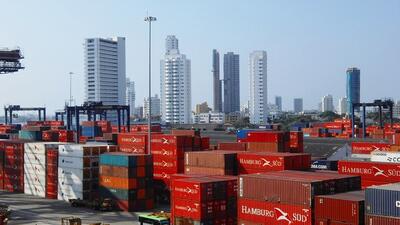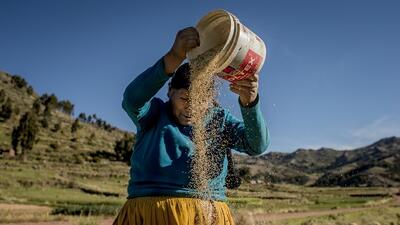Colombian Coffee - Challenges and Opportunities Ahead for the Colombian Coffee Growers’ Federation
For many years Colombian Coffee has being recognized as one of the most important coffee producers in the world. In response to changes in the global coffee market, the Colombian Coffee Growers’ Federation has successfully adapted its supply chain models to meet the challenges of new market conditions.
Today, the global coffee market is more convenient, dynamic and flexible than ever before. In the wake of the global economic crisis, consumers are spending less on coffee by drinking at home and roasters are responding by launching convenient, easy-to-use premium products. New players and distribution channels are emerging, traditional brands are competing with cheaper products and major companies are taking tactical measures to increase their market share, creating a need for supply chain changes to adapt to market conditions.
The Colombian Coffee Growers’ Federation shifted to a new supply chain model in order to respond to customer needs. In helping more than 500,000 coffee producers, of which 91% are small farmers, go global, our first response was to engage the coffee growers in the supply chain concept. This included the main elements of a pull system model with the aim of protecting our core value proposition: freshness.
In adapting our supply chain models to changing market conditions we were able to do so without affecting the value proposition of our product. Through the following examples the federation has demonstrated how flexible supply chain models can succeed in evolving market conditions.
In Japan, the federation has supplied high- quality green coffee beans to one of the major soft drink companies for more than 15 years, demonstrating how innovative ideas have longevity in the complex world of commodities. The model is simple. The federation sells the company high-quality, branded green coffee beans to supply the most successful canned coffee in the Japanese market. The final product bears the brand of the beans, which is owned by the federation but licensed to the soft drink company. The success of this business has seen premium prices delivered to growers with social benefits to the coffee-producing regions where these coffee beans are grown.
In one of the federation’s most challenging models, it has the responsibility of delivering green beans from the farm directly to the European factories of one of the world’s largest food companies. This requires synchronization along the supply chain and involves not only selling green beans but also selling services to the buyer as some of the beans supplied by the federation must come from specific producer regions across Colombia. The model demands the best of the federation’s services in terms of coffee searching, quality control and, again, freshness. This project also involves responsible and sustainable policies by means of social and technical assistance for the coffee growers concerned.
The federation also supplies instant coffee jars to a major Australian retailer with the retailer’s private brand. As in the previous example, this model requires extra coordination to engage not only the coffee producers but the federation’s freeze-dried coffee factory and the suppliers of the materials needed to produce the glass jars. This business model features value creation as the federation supplies the final good to consumers.
These examples demonstrate the need for flexible supply chain models that can adapt to market conditions and face new challen-ges with different levels of complexity without affecting the quality, value proposition or response to customer needs. With large quantities of cheap, low-quality coffees entering the mainstream coffee market, it is important that we maintain the value of Colombian Coffee. Our aim is to maintain and increase the consumer desire for good coffee, but also to maintain our customers by selling services and adding value to the green beans.
Additionally, price fluctuations increase the risk in trading coffee with increased costs along the supply chain. Good risk management policies that protect growers’ income are instrumental for the sustainability of coffee production and for the stability of coffee supply.
Other across-the-board challenges affecting the global supply chain include the diversity of suppliers, new market trends, such as ethical trade and corporate social responsibility, and the increasing share of private brands on supermarket shelves. These new trends and trade practices create additional pressure on the global supply chain, reinforcing the need for flexibility, adaptability and readiness to survive in a changing market.











